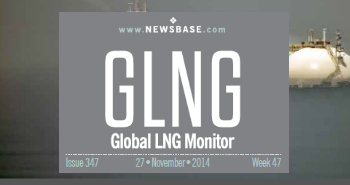Turkmenistan suffers energy export setback as Turkey opts for new LNG deal

Turkmenistan’s hopes of arranging a swap deal to carry the first small volumes of its gas to Turkey, and possibly on to Europe, have been dealt a blow, as Ankara has inked its third long-term liquefied natural gas (LNG) purchase agreement in five months.
September 18 saw Turkey’s state gas importer Botas agree with France’s TotalEnergies to import 1.6bn cubic metres (bcm) per year of LNG from the United States, starting in 2027. The new deal follows a similar Botas agreement with Shell signed earlier in September covering 4 bcm per year, also beginning in 2027. A third deal was inked last May with ExxonMobil; details of that agreement have yet to be released.
Neither Ankara nor Ashgabat have commented on whether Turkey’s new LNG supply contracts will have an impact on longstanding plans for Turkey to import gas from Turkmenistan. However, basic market realities indicate that the more gas Ankara imports from other sources, the less it will need Turkmen gas to meet domestic demand and export commitments.
At the same time, Ankara potentially could still be ready to take Turkmen gas. Such imports would be sold at a gas trading hub Turkish officials are seeking to establish in northwestern Turkey. However, in a television interview on September 20, Turkish Energy Minister Alparslan Bayraktar said Turkey has the capacity to receive up to 80 bcm a year of gas, but only needs around 50 bcm/yr to meet its own demand.
“If there is an export opportunity and we can reach an agreement with customers in Europe, we can import LNG from many different sources,” he said. He specifically cited the United States, Qatar, Oman and Trinidad and Tobago as possible suppliers, but made no mention of Turkmenistan.
Only a few months ago, the picture seemed very different. Back in March, Turkmen President Serdar Berdimuhamedov and Turkish President Recep Tayyip Erdogan signed a preliminary agreement covering a “swap deal” involving Turkmenistan, Turkey and Iran. The early hopes that a final deal could be reached were never fulfilled, however. According to unverified reports, negotiations stalled when Turkmen officials proved hard to pin down on a purchase price.
Turkmenistan’s loss could be Azerbaijan’s gain. Whatever the reason for the failure of Turkey and Turkmenistan to conclude a gas swap deal, Ankara’s new long-term LNG supply agreements could work in Azerbaijan’s favour. Baku’s gas production has been increasing to a level where it doesn’t need gas from Turkmenistan to meet its short-term domestic needs and export commitments.
However, there is still a question mark over whether Azerbaijan will be able to fulfil its July 2022 promise to the European Union to double exports to Europe to 20 bcm per year by 2027. Now, with Ankara turning to LNG to meet an increasing portion of its own gas demand, there is the possibility that Botas won’t need to import so much gas from Azerbaijan, thus giving Baku more gas that it can ship to EU states. Last year, Turkey imported 10.3 bcm of gas from Azerbaijan, 20% of its total imports, up from 8.7 bcm in 2022.
David O’Byrne is an Istanbul-based journalist who covers energy.
This article first appeared on Eurasianet here.





Follow us online